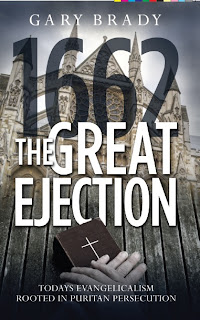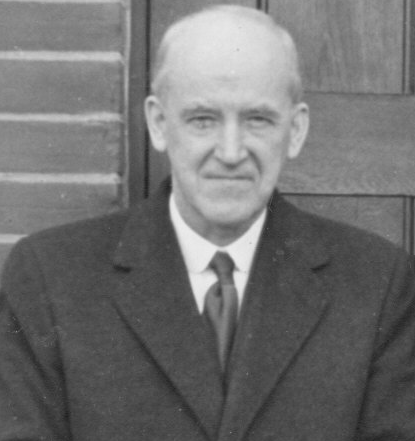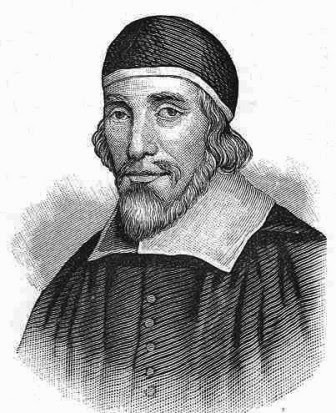The Compton Census was an ecclesiatical census taken in 1676 and named after Henry Compton, the Bishop of London. The incumbents of the parish were recorded as either Conformists, Papists or Nonconformists. In many cases the number of Conformists may have been the total population of the parish over 16.
What it could not account for is Nonconformists who also conformed! (ie went to the parish church as well as to conventicles).
It covered about 70% of the country. Brown says it suggested that 5% were Dissenters and 1% Romanists (p 31). Being an ecclesiatical census it collected by ecclesiastical parishes which aggregated into arch-deaconeries and dioceses rather than the civil hundreds and ancient counties.
Saturday 7 June 2014
The Acts of Indulgence
There two Acts of Indulgence that brought some limited relief to the persecuted Nonconformists between 1662 and 1689. These were
1. 1672 under Charles II
This Royal Declaration of Indulgence was Charles II's attempt to extend religious liberty to Protestant nonconformists and Roman Catholics by suspending the execution of the penal laws that punished recusants from the Church of England. The Declaration was issued March 15, 1672.
It required Nonconformists to register their places of worship and ministers.
The Cavalier Parliament in 1673, however, compelled him to withdraw this declaration and implement, in its place, the first of the Test Acts (1673), which required anyone entering public service in England to deny the Catholic doctrine of transubstantiation and take Anglican communion. The act only lasted 11 months.
2. 1687 under James II
This Declaration of Indulgence or Declaration for Liberty of Conscience was a pair of proclamations made by James II (VII of Scotland), first issued for Scotland on February 12, 1687, then for England on April 4, 1687. It was a first stab at establishing freedom of religion in the British Isles. The Declaration granted broad religious freedom in England by suspending penal laws enforcing conformity to the Church of England and allowing persons to worship in their homes or chapels as they saw fit, and it ended the requirement of affirming religious oaths before gaining employment in government office. By use of the royal suspending power the king lifted the religious penal laws and granted toleration to the various Christian denominations, Catholic and Protestant, within his kingdoms. It was supported by William Penn, widely perceived to be its instigator. It was greatly opposed by Anglicans in England on religious and constitutional grounds. Some Anglicans objected to the fact that the Declaration had no specified limits and thus, at least in theory, licensed the practice of any religion, including Islam, Judaism or paganism. Many also objected to the fact that the king, by issuing the Declaration, had implicitly claimed a power to suspend laws passed by Parliament.
The Scots version had to be re-issued after strong opposition. The English version was welcomed by most non-conformists but as in Scotland the Presbyterians were more reluctant to wholeheartedly accept it. There was concern that the toleration rested only on the King's arbitrary will. The Anglican Church was greatly disturbed by it.
The English Indulgence was reissued on April 27, 1688, leading to open resistance from Anglicans. Few clergy read out the indulgence in Church. The Scottish Declaration was reaffirmed in a second proclamation in May, 1688. Some Scottish Episcopalians refused to recognise the Indulgence. William Sancroft, Archbishop of Canterbury, and six other Bishops presented a petition to the King declaring the Indulgence illegal. James regarded this as rebellion and sedition and promptly had the bishops put in the Tower (where leading Nonconformists visited them!) and tried; however, the bishops were acquitted. Many Presbyterians were sceptical of the king's intentions in proclaiming the Declaration, while other dissenters, including the Quakers and the Baptists, gave thanks to the king for the Indulgence. The Indulgences were voided when James II was deposed in the Glorious Revolution. The Bill of Rights abolished the suspending power.
2. 1687 under James II
This Declaration of Indulgence or Declaration for Liberty of Conscience was a pair of proclamations made by James II (VII of Scotland), first issued for Scotland on February 12, 1687, then for England on April 4, 1687. It was a first stab at establishing freedom of religion in the British Isles. The Declaration granted broad religious freedom in England by suspending penal laws enforcing conformity to the Church of England and allowing persons to worship in their homes or chapels as they saw fit, and it ended the requirement of affirming religious oaths before gaining employment in government office. By use of the royal suspending power the king lifted the religious penal laws and granted toleration to the various Christian denominations, Catholic and Protestant, within his kingdoms. It was supported by William Penn, widely perceived to be its instigator. It was greatly opposed by Anglicans in England on religious and constitutional grounds. Some Anglicans objected to the fact that the Declaration had no specified limits and thus, at least in theory, licensed the practice of any religion, including Islam, Judaism or paganism. Many also objected to the fact that the king, by issuing the Declaration, had implicitly claimed a power to suspend laws passed by Parliament.
The Scots version had to be re-issued after strong opposition. The English version was welcomed by most non-conformists but as in Scotland the Presbyterians were more reluctant to wholeheartedly accept it. There was concern that the toleration rested only on the King's arbitrary will. The Anglican Church was greatly disturbed by it.
The English Indulgence was reissued on April 27, 1688, leading to open resistance from Anglicans. Few clergy read out the indulgence in Church. The Scottish Declaration was reaffirmed in a second proclamation in May, 1688. Some Scottish Episcopalians refused to recognise the Indulgence. William Sancroft, Archbishop of Canterbury, and six other Bishops presented a petition to the King declaring the Indulgence illegal. James regarded this as rebellion and sedition and promptly had the bishops put in the Tower (where leading Nonconformists visited them!) and tried; however, the bishops were acquitted. Many Presbyterians were sceptical of the king's intentions in proclaiming the Declaration, while other dissenters, including the Quakers and the Baptists, gave thanks to the king for the Indulgence. The Indulgences were voided when James II was deposed in the Glorious Revolution. The Bill of Rights abolished the suspending power.
Seasonable Counsel from Bunyan
In 1684 John Bunyan published a book of seasonable counsel to sufferers, the times still being very hard for Nonconformists. Raymond Brown (p 35) draws attention to this section as it gives the flavour of the times.
Direction 4. Wouldest thou not suffer as an evil-doer, addict not thyself to play with evil, to joke and jest, and mock at men in place and power. Gaal mocked at Abimelech, and said, Who is Abimelech that we should serve him? But he paid for his disdainful language at last (Judges 9). I have heard of an innkeeper here in England, whose sign was the crown, and he was a merry man. Now he had a boy, of whom he used to say, when he was jovial among his guests, This boy is heir to the crown, or this boy shall be heir to the crown; and if I mistake not the story, for these words he lost his life.
It is bad jesting with great things, with things that are God's ordinance, as kings and governors are. Yea, let them rather have that fear, that honour, that reverence, that worship, that is due to their place, their office, and dignity. How Paul gave honour and respect unto those that were but deputy-kings and heathen magistrates, will greatly appear, if you do but read his trials before them in the book called, The Acts of the Apostles. And what a charge both he and Peter have left behind them to the churches to do so too, may be found to conviction, if we read their epistles.
Wednesday 4 June 2014
Joseph Besse on sufferings of the Quakers and others
In Joseph Besse's 1773 book we read (see Raymond Brown p 25)
By an Order of Sessions held at Shefford on the 8th of the Month called
April this Year (1682?), Prosecutions were carried on afresh, especially in the Parish
where Justice Reeling dwelt, whose Authority influenced inferior Officers to act
beyond their Inclinations. From William Rogers, a Wheelwright, they took his
working Tools, not for want of other Goods, but on purpose to disable him
from working for his Livelihood. From a poor lame Maid, a Baptist, who
earned her Bread by spinning and teaching Children, they took, by the Justice's
Order, her spinning Wheel : He also forbad the Neighbours to send her their
Children, saying, in his ignorant Zeal, She should not teach Children to be
damned and when she had no Goods left to distrain, he threatened to send her
to Bridewell. He not only caused the Goods of several poor People to be
taken away, but threatened to punish their Neighbours for relieving them. The
Priest of the Parish was of a like Disposition, for hearing of a Meeting in a
distant Place, he by Threats constrained the Constable to go thither, and give
Information to the Justice. And so intent was this Priest on a Part of the PFrey, that he went into the Yard of the aforesaid William Rogers, and cheapened some Wood, of which when the Owner told him the Price, he replied, "Let
it alone till it be distrained and then I will have it for half the Value.
No Win Situation
It is said of Oliver Heywood that because for two or three Sundays he persisted in preaching after the Act of Uniformity he was excommunicated, the sentence of excommunication being publicly read in Halifax Church on November 2, 1662, in the parish church of Bolton, Lancashire, on January 4, 1663, and again at Halifax on December 3, 1663. For this reason attempts were made to exclude him from churches, even as a hearer. At the same time the churchwarden claimed fines from him for his non-attendance at Coley Chapel, under the statute of Elizabeth (four shillings for four sabbaths).
Heywood's diary says
"Stephen Ellis, our churchwarden, came to demand four shillings for my absence from church four sabbaths. My servant answered, that if I came, he would put me out of church. Yes, said he, and so I will too, for the law must be executed, both to keep him away, and punish his absence."
Tuesday 3 June 2014
The Conventicle Acts and their devilish malice
The Conventicle Act of 1593 (or Religion Act 1592) stated that anyone over 16 who failed to attend the Parish Church or persuaded others to do the same should. It is the law that was used to put John Bunyan in prison in 1660.
A fresh Conventicle Act was passed in 1664 (part of the Clarendon Code as it was later called). This act forbade religious assemblies of more than five people outside the auspices of the State Church. In his diary the previous September Samuel Pepys quotes his cousin, a barrister and MP, speaking of "too devilish a severe act against conventicles; so beyond all moderation, that he is afeard it will ruin all".
In 1670 a second conventicles act, "An Act to prevent and suppress Seditious Conventicles" was passed legislating fines for attending or facilitating conventicles. This is the act that Andrew Marvell referred to as "the quintessence of arbitrary malice" (in a letter to William Popple).
Monday 2 June 2014
The basic matter
In his book Raymond Brown (p 16) says that although divided among themselves, it was true of Presbyterians, Independents, Baptists and Quakers that
... the basic matter on which they all agreed was that they prized their own religious liberty and found it impossible to submit to the element of compulsion in such treasured realms as personal faith, doctrinal conviction and corporate worship.
Ejection a death
From 1657 Philip Henry regularly kept a diary and would annually make an interesting note on the return of his birthday. He was born on St Bartholomew's Day, 1631. In 1663 he wrote of it as “being the day of the year on which I was born … and also the day of the year on which by law I died, as did also near two thousand faithful ministers of Jesus Christ”.
Raymond Brown (p 10) points out that phrases such as "as though the person ... so offending or neglecting were dead" occur five times in the Act of Uniformity. He quotes Henry and adds in a footnote that in farewell sermons Thomas Watson says that he and his colleagues would "be laid down shortly as if we were naturally dead" and speaks of leaving legacies. Daniel Bull spoke of "dying in this congregation".
Note also how Calamy summarises the moving sermon by Edward Hancock of Bristol on 2 Corinthians 13:11 beginning,
"
At this time I am called to a work, which possibly may be unpleasing to many, even as to myself; that is, to die a civil death, whilst I am naturally alive."
Devonian nonconformist and Huguenot biographer John Quick, who, until imprisoned, carried on preaching in Brixton after his ejection spoke of ‘that unrighteous Act, which slew in one day two thousand able and faithful ministers of the gospel’.
Subscribe to:
Posts (Atom)

.jpg)
















.jpg/220px-Thomas_Watson_(Puritan).jpg)
